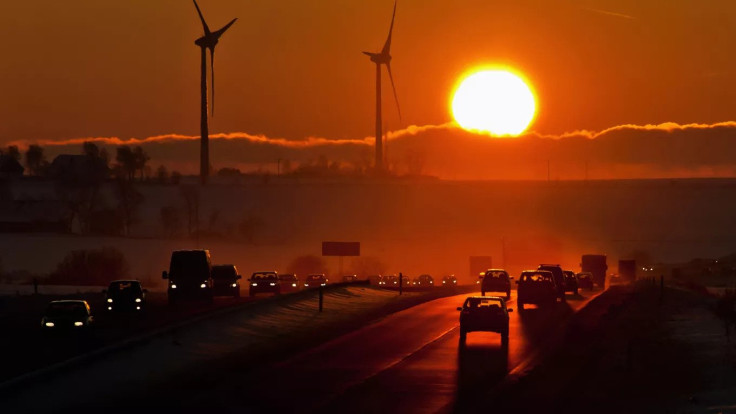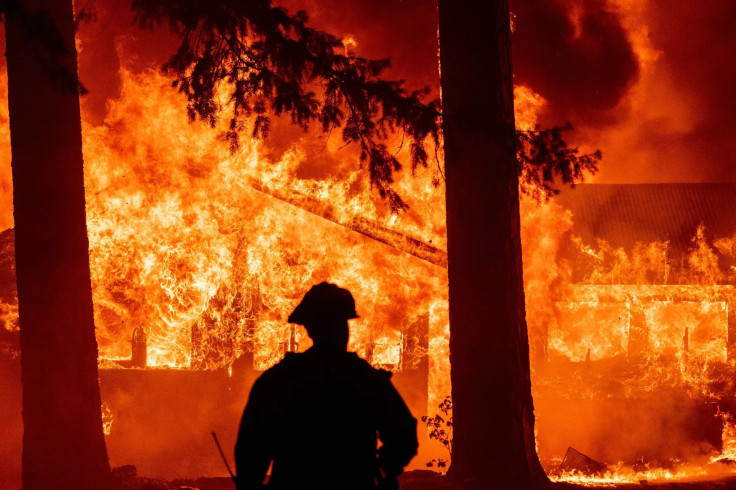Global warming set to break crucial 1.5C limit for first time
The world's temperature is likely to surpass the 1.5C limit for the first time, scientists predict, warning that the development of El Niño will "most likely lead to a new spike in global heating".

The world's temperature is likely to surpass the 1.5C limit for the first time, scientists predict. According to researchers, there is now a 66 per cent chance we will pass the 1.5C global warming threshold between now and 2027.
The probability of this increase has risen dramatically due to emissions from human activities, in addition to the anticipated "El Nino" weather event, which is expected to occur this summer.
El Niño is a climate pattern that occurs in the Pacific Ocean, characterised by a warming of the sea surface temperature in the central and eastern tropical Pacific. This warming typically occurs every 2 to 7 years and can last for several months to a year or more.
The UN's World Meteorological Organization (WMO) said it now estimated there was a 60 per cent chance that El Nino would develop by the end of July and an 80 per cent chance it would do so by the end of September.
Professor Taalas, the WMO Secretary-General, warned that the development of El Niño will "most likely lead to a new spike in global heating and increase the chance of breaking temperature records".
Even without the impact of weather phenomena such as El Niño, the world's temperature has been rising steadily since the 19th century, when mass industrialisation meant fossil fuel emissions began to wreak havoc on the climate.
This is what's known as "the enhanced greenhouse effect".
By burning fossil fuels such as oil, gas and coal, carbon dioxide is released into the air, which causes the planet to heat up. This underpins the large scientific consensus that humans are the leading cause of climate change.
In their latest report, the Intergovernmental Panel on Climate Change stated unequivocally that human activity is the cause of global warming.
Consequently, the 2015 Paris Agreement was a legally binding international treaty designed to address the role we play in climate change and reverse the damage already done.
Its overarching goal is to hold "the increase in the global average temperature to well below 2C above pre-industrial levels" and pursue efforts "to limit the temperature increase to 1.5C above pre-industrial levels."
The UN's Intergovernmental Panel on Climate Change indicates that crossing the 1.5C threshold risks unleashing far more severe climate change impacts, including more frequent and severe droughts, heatwaves and rainfall.
In order to limit global warming to 1.5C, greenhouse gas emissions must peak before 2025 at the latest and decline by 43 per cent by 2030. However, the latest research suggests that the world is set to pass the limit in the near future.
Since 2020 the WMO has been giving an estimate of the chances of the world breaking the 1.5C threshold in any one year. Back then they predicted there was less than a 20 per cent chance of breaking 1.5C in the five years ahead.
By last year this had increased to 50 per cent, and now the jump to 66 per cent means it's "more likely than not," according to scientists.
"We really are now within reach of a temporary exceedance of 1.5C for the annual mean temperature, and that's the first time in human history we've been that close," said Professor Adam Scaife, head of long-range forecasts at the Met Office, who compile the data from weather and climate agencies around the world.
However, breaking the limit now would not necessarily render the goals of the Paris Agreement void. The researchers stress that temperatures would have to stay at or above 1.5C for 20 years to be able to say the Paris Agreement threshold had been passed.
This report does not mean that we will permanently exceed the 1.5C level specified in the Paris Agreement which refers to long-term warming over many years," said Professor Taalas.
"But, WMO is sounding the alarm that we will breach the 1.5C level on a temporary basis with increasing frequency," he added.

Globally, the impact of global warming is already clear to see.
A new study quantified a link between the climate crisis and wildfires in the United States, finding that carbon dioxide and methane emissions from the so-called "Big 88" firms were responsible for more than a third of the area scorched by forest blazes in western North America over the past 40 years.
Last month, a UN climate report found that global sea levels are rising at more than double the pace they did in the first decade of measurements in 1993-2002, and hit a new record high last year.
In the UK, the Government's Net-Zero strategy aims to reduce climate-wrecking emissions and decarbonise all sectors of the UK economy, in order to meet its target of net zero emissions by 2050.
However, a 600-page assessment of the UK's journey towards net zero targets by the Climate Change Committee declared that "goals were being undermined by failures in delivery programmes".
Prime Minister Rishi Sunak also failed to include the government's net zero strategies in his five key priorities for this year, and he was reluctant to appear at the November COP27 Summit in Egypt. And now, the latest warning from scientists suggests that efforts to reduce the global temperature may have already failed.
© Copyright IBTimes 2025. All rights reserved.






















